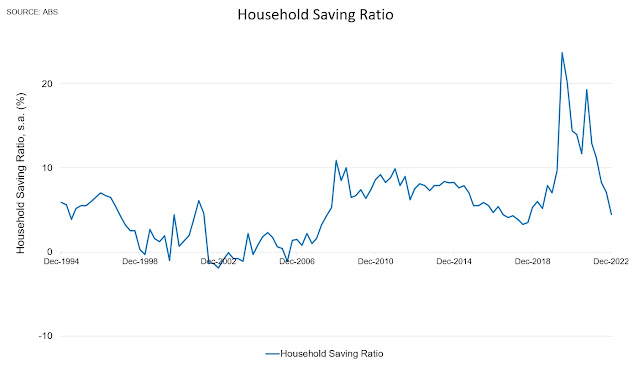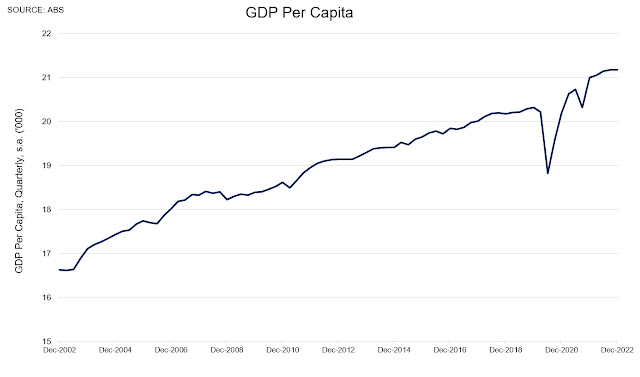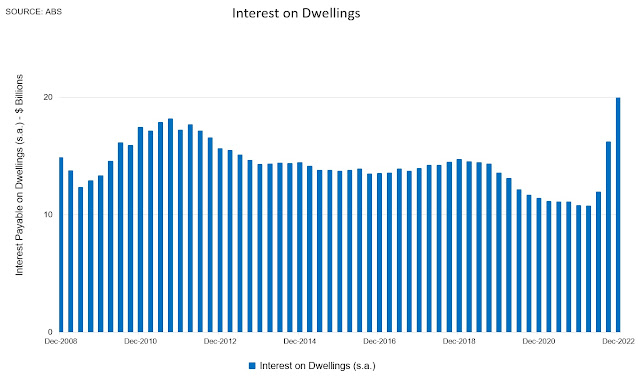The household saving ratio continued to plummet in the last quarter of 2022, now down to just 4.5 per cent, from a pandemic high of 23.7 per cent in 2020.
The level will be quite close to zero by the end of this month.




With further rate hikes to flow through on tens of billions of dollars of fixed rate mortgages over the year ahead, it's more or less certain now that the household savings ratio will sink towards zero (and perhaps turn negative).
Inflation slows sharply
Economists had expected the monthly inflation indicator to slow from 8.4 per cent year-on-year to around 8.1 per cent in January, but in the event the result was considerably weaker at 7.4 per cent.
Excluding travel costs, the monthly inflation indicator slowed even more significantly, down to 6.7 per cent over the year.
The one component of inflation which is certain to rise from here is rents, with tight lending standards for landlords being extended for another month, and ASIC reporting a gathering surge in developer insolvencies, further slowing down new supply.
This week's economic data releases continue the theme that the interest rate hikes have already inflicted considerable wounds upon the economy, with more to come as the fixed rate cliff bites in time.
If anything the monetary tightening may well prove to have been too effective, with Westpac and others already predicting deep interest rates cuts in 2024 and 2025.
If they're right, then 2023 will prove to be a great time to buy property, by the way.
















